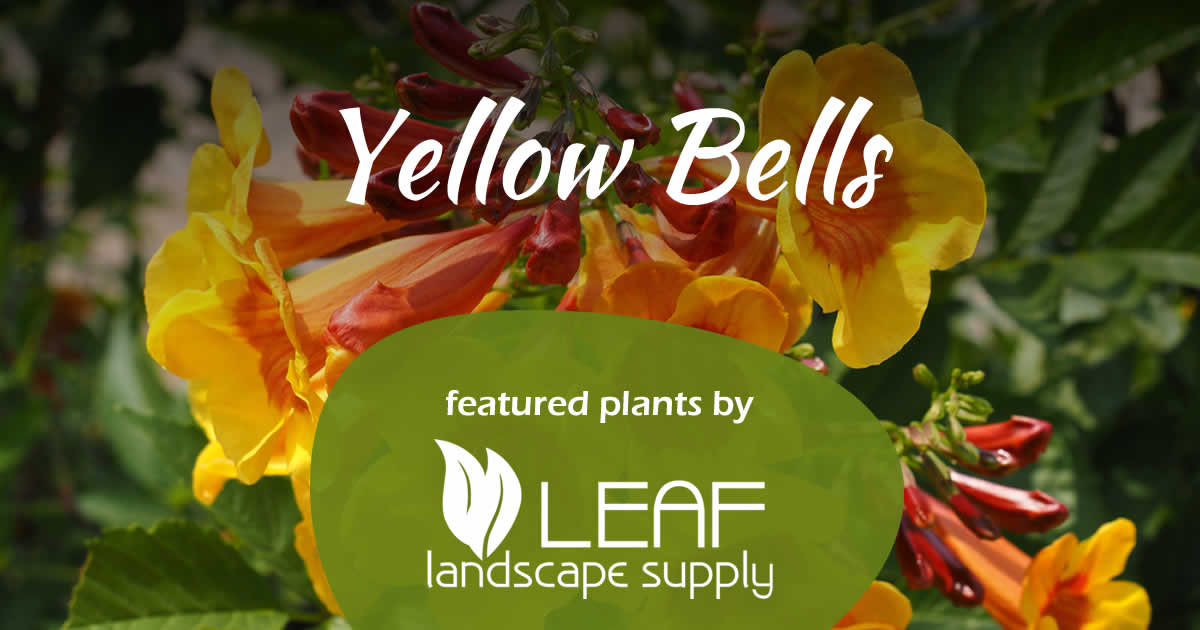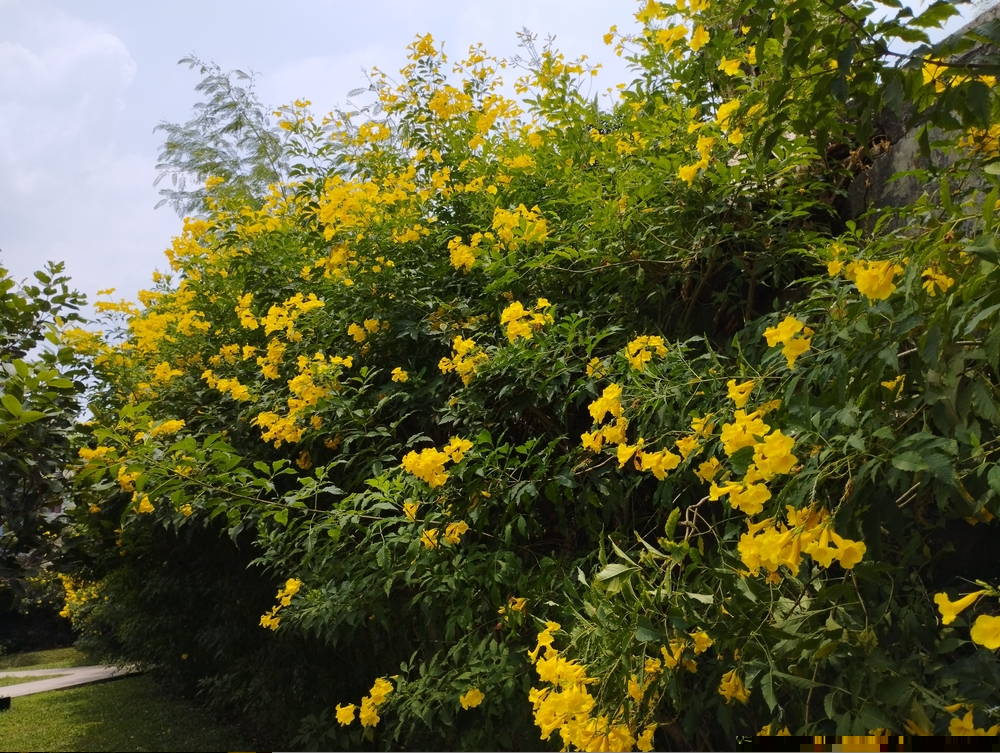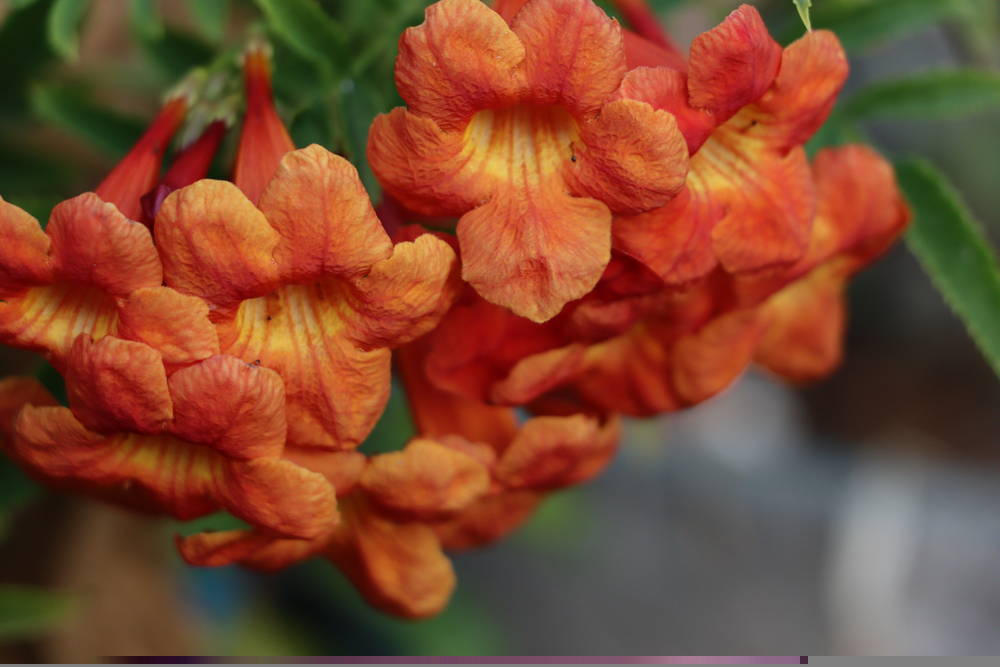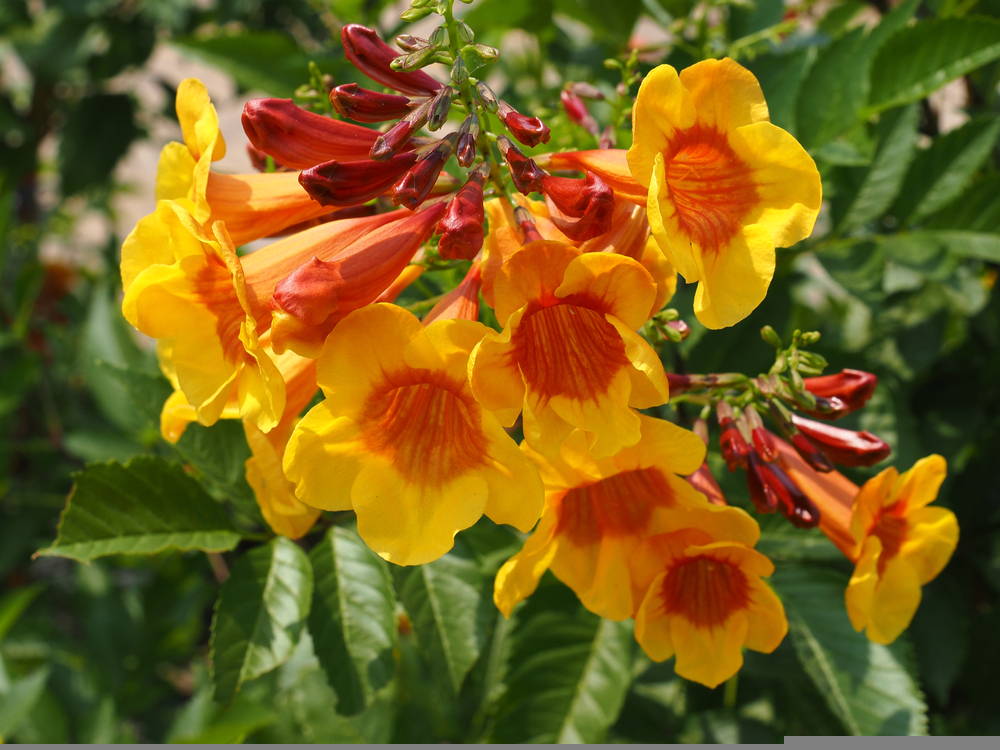
Yellow Bells
Garden Glory: Beautiful Yellow Bells Stand Up to Austin Heat!
Bursting with flowers in tropical colors and pollinator power to your garden; Yellow Bells are known for their trumpet-shaped blooms and fast-growing nature. Standout choices for warm climate landscapes, whether you want compact shrubs for small spaces or large flowering hedges. Attractive to hummingbirds and pollinators, there’s always a cultivar to fit the bill! From golden yellow to fiery coral, these sun-loving plants bloom for months and thrive with minimal fuss (they rarely need fertilizer), making them ideal for both novice and seasoned gardeners.
Popular Yellow Bells Varieties
- Bells of Fire: Compact with deep red-orange flowers; great for borders or containers. Tamaño maduro: 4-6ft H, 4-5ft W
- Gold Star: Compact yellow-blooming cultivar; great for small gardens or pots. Tamaño maduro: 4-6ft H, 4-5ft W. Close in hardiness to the native stans.
- Kalama: Bright coral-orange blooms and lush tropical appeal; upright form. Tamaño maduro: 6-8ft H, 5-6ft W
- Orange Jubilee: Vigorous and bushy with bold orange flowers; ideal as a privacy screen. Tamaño maduro: 10-15ft H, 8-10ft W. Somewhat cold tolerant.
- Papaya: Papaya-orange flowers with golden throats; long-blooming and showy. Tamaño maduro: 6-10ft H, 6-8ft W
- Red Hot: Reddish-orange to red blooms; upright and eye-catching. Tamaño maduro: 6-8ft H, 5-6ft W
- stans Native species with classic bright yellow blooms; can grow tree-like. Tamaño maduro: 10-20ft H, 6-10ft W. Most cold hardy
- Sunrise: Unique bicolor yellow-orange flowers; excellent for mass planting. Tamaño maduro: 6-10ft H, 6-8ft W
Tecoma Care in Austin
La luz del sol: 6 hours + daily
Agua: Well drained soil. Once established, they can thrive on deep, infrequent watering—about every 7–10 days in summer, less in cooler months. Poda: Heavy in March for shape; lighter in the summer to encourage blooming.care; aphids may appear but rarely harm the plant.ne growing season). Cut back flower stalks after blooming to maintain form.



